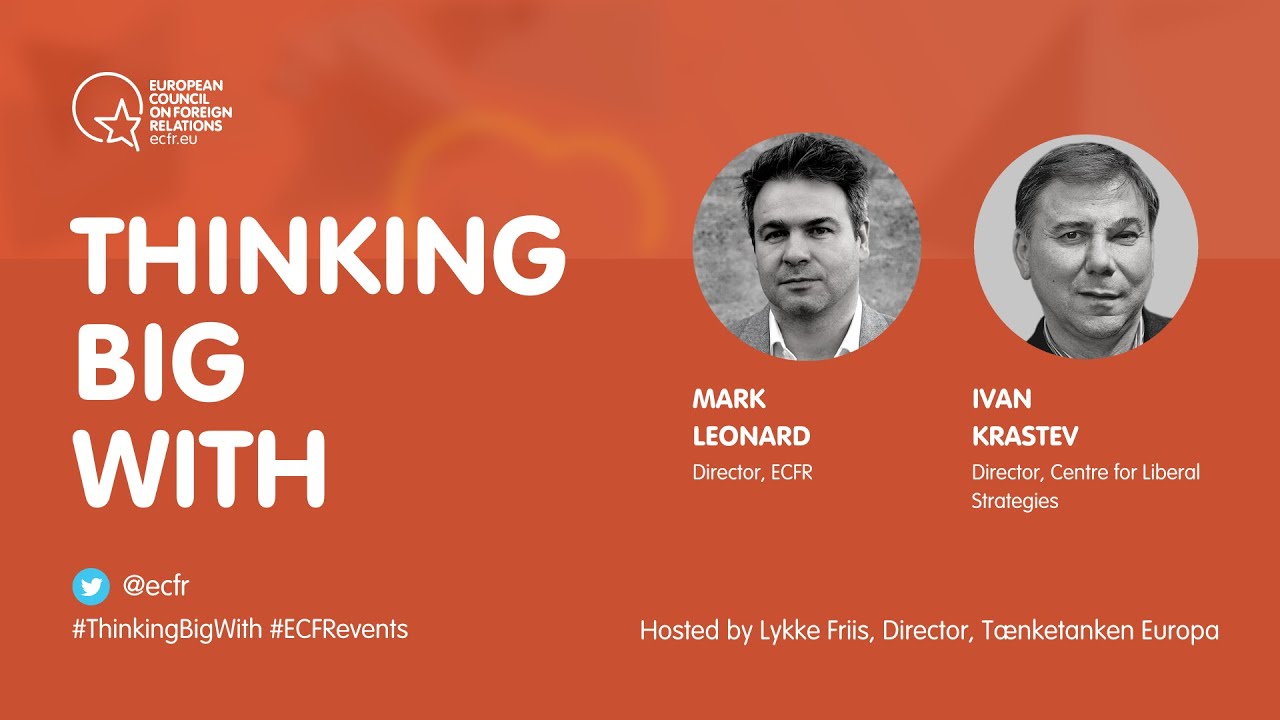THINKING BIG WITH Ivan Krastev and Mark Leonard on the Age of Unpeace
What do China’s mask diplomacy, America’s sanctions on Iran, Russia’s election interference, Belarus’s migration policy, struggles over Huawei, Covid-19 and Climate change have in common?
Guests
Ivan Krastev, Director, Centre for Liberal Strategies
Mark Leonard, Director, European Council on Foreign Relations
Chaired by
Lykke Friis, Director, Tænketanken Europa
What do China’s mask diplomacy, America’s sanctions on Iran, Russia’s election interference, Belarus’s migration policy, struggles over Huawei, Covid-19 and Climate change have in common? Although seemingly separate events, they are all examples of globalisation being turned into a weapon. They are all connectivity conflicts with the potential to create economic hardship and pose costs to human life.
In today’s world, many of the forces that were supposed to bring the world together have ended up driving us apart. Trade, technology, the internet and travel promised to create a global village, but they are also giving countries a reason to fight one another, the opportunity to struggle and an arsenal of new weapons, from cyber-attacks and sanctions to fake news and weaponised vaccines.
Building on the argument from his new book, The Age of Unpeace: How Connectivity Causes Conflict, Mark Leonard and Ivan Krastev will together with Lykke Friis, ECFR co-chair and Director of the Danish Think Tank Europa, unveil:
- How connectivity has fragmented our societies, politics and made people focus more on what divided them rather than what they hold in common
- Why interdependence makes conflict cheaper and more likely in international relations
- How the five big forces driving interdependence – the economy, infrastructure, technology, migration, and international institutions – are being turned into a weapon.
- What the new topography of power looks like
- What steps we can take to disarm connectivity and avoid catastrophe
ECFR’s series THINKING BIG WITH aims to go beyond the obvious and immediate. It rather means to force us to look at big, bold, counter-intuitive ideas that have the potential to fundamentally reshape Europe’s role in a geopolitical world over the next decades. Bringing together the brightest thinkers and surprising voices, the series aims to unlock political creativity to inspire ideas for a strong Europe in a post-corona world.

